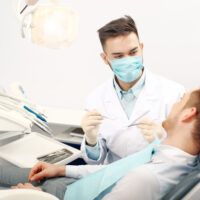Common Causes and Treatments for Red Eye
Eyes are one of the most sensitive organs in the body and immediately react to external factors such as stress or other internal abnormalities. One should be able to identify the cause of the red eye and treat it appropriately. The first step in Red-Eye treatment involves recognizing the cause of Red-Eye.

Everyday Irritations
One might experience regular irritations to the eye from pollution as well as sleeplessness. The dust, particulate matter, and allergens in the air like pollen can irritate the soft lining of the eye and cause it to turn red. Similar is the case with the lack of sleep! Your eyes also need to replenish and rest after a long tiring day at work. Today, the pressure on eyes has increased further due to constant use of gadgets and also the use of contact lenses.
Treatment – The best Red-Eye treatment to get rid of these irritants is a good night’s sleep and a warm or cool compress. A warm compress increases the blood flow to the eyes and improves the lubrication to the eyes hence cooling the eyes. While using a cold compress can relieve swelling and itchiness, you can also use artificial teardrops to induce lubrication through tears in the eyes. The teardrops will wash off any dust or particulate matter and remove dryness of the eyes. These basic home remedies should be able to treat red eye caused by these common irritations.
Conjunctivitis
Conjunctivitis is a widespread ailment and is a highly communicable disease often affecting entire communities at the same time! Conjunctivitis is the inflammation of the thin tissue covering the eyeball known as conjunctiva. This causes the blood vessels in the eye to swell up and make the eyes appear red or bloodshot. The redness is accompanied by itchiness and watering of the eye as well as sticky coating. Conjunctivitis is mostly caused by an infection or sometimes by an allergy as well.
Treatment – This Red-Eye treatment involves visiting a doctor if you suffer from any of the symptoms of conjunctivitis. Most often the doctor will recommend you to clean the eye of the discharge and any other fluids that may appear. They will recommend antibacterial or antibiotic eye drops such as antihistamines to be used multiple times during the day. You will also be asked to avoid wearing contact lenses during the treatment. Also, make sure you do not share towels or other clothing with others as well as continuously wash your hands to prevent passing on this infection to others.
Bursting of a Blood Vessel
Often you will suddenly see the appearance of a blood red patch in your eye. This often looks dangerous and might even be painful. This is caused due to excessive strain on the eye caused either by coughing or direct injury. Medically it is known as subconjunctival hemorrhage and requires the immediate attention of a doctor.
Treatment – The issue is quite common and is easily treated with an aspirin which will reduce the ability of the blood to clot and reduce the redness in the eye. It is not very serious and will reduce within a few weeks. Unless you are facing any issues in sight, do not worry about the problem.
Acute Glaucoma
Glaucoma is a condition that affects many people over the age of 40. This condition is caused by intense pressure on the eye’s optic nerve that increases over time. The increased pressure can lead to permanent vision loss if unchecked. Sometimes there can be an attack of acute glaucoma when the pressure increases immensely. This is characterized by a red eye and pain accompanied by the blurring of vision. This requires immediate medical attention and a visit to the emergency room.
Treatment – If you have a family history of glaucoma, you should get a yearly eye check with your doctor. In the case of acute glaucoma, immediately visit the doctor who will refer you to an ophthalmologist to treat the issue.
Corneal Ulcer
A common problem that afflicts lens users is a corneal ulcer. This is an ulcer that is formed on the cornea which is the outer layer in front of the eyeball. When you have this ulcer, your eye starts to appear red and becomes very sensitive to light. You constantly feel the need to itch or touch your eye as you feel like there is something in the eye! These ulcers are often caused by bacterial infections.
Treatment – You need to go to a doctor who may refer you to an ophthalmologist to treat the ulcer.
All these are common instances of red-eye. However, a visit to the doctor is necessary to ensure that you have identified the right cause of the problem and treated it accordingly. Avoiding an issue with the eyes can lead to irreparable damage to the eyes even leading to blindness! Ensure you take good care of your eyes with regular eye checkups and give them a good rest every day.











